It has been an incredibly busy two weeks, but I am slowly coming back to life! I traveled to Vancouver, Washington for the annual NTA conference, relaunched my website, and then had my NTA midterms / workshop weekend. And I picked up the flu along the way. It was hectic. Now that I’ve had some time to catch up on things and clear my head, I thought I would give a recap of the NTA conference for anyone who might be interested in what some of the speakers talked about. Kara and I recorded an episode of Straight Up Paleo all about the conference, so definitely listen to that, but I also wanted to fill you in here in case you’re more of a “reader” than a “listener.”
I flew to Portland, Oregon to meet up with Kara a day before the conference started so that we would have time to explore the city (I love Portland) and celebrate her birthday. We stayed at an adorable Airbnb in Vancouver, which is only about 15 minutes from all of the delicious restaurants in Portland. It’s definitely a foodie city, which is why I love it so much. My favorite place was Cultured Caveman, which is a completely paleo restaurant. Cultured Caveman was extremely crowded the whole weekend because I’m pretty sure everyone from the conference ate there at least once. It was worth the wait, though! We went multiple times, and I tried a bunch of different dishes – the Shepherd’s Pie, Chicken Curry, Chicken Parmesan, creamy turmeric veggies, broccoli bacon slaw, zoodles….just all of the things. If you visit Portland, I highly recommend you check it out!
We also went to Dick’s Kitchen for burgers (their boar burger was amazing), Broth Bar to create our own bone broth soups (I got the braised beef tongue, of course), Verde Cocina (the paleo bowl and guac were on point), Harlow and Prasad (great for breakfast or lunch), Cacao (we died over the 100% drinking chocolate), Kure Juice, Gem Bakery (gluten-free bakery with vegan options), and Eb & Bean (delicious vegan soft serve filled with probiotics – make sure you get the newtella chocolate shell and coconut caramel). I highly recommend all of those places if you’re looking for eateries with healthy paleo / gluten-free / dairy-free / vegan options. For more recs and in-depth reviews, check out my blog post recapping the last time I went to Portland!
The entire weekend consisted of 1) eating and 2) watching the different talks and panels at the conference. There were three days of speakers, and in between we had breaks to visit the vendor floor outside, where a ton of different brands and services showcased their products with more information. I left with a lot of samples, and even some full-sized products. Some of my favorite brands like Vital Proteins, Herbal Element, Gold Nugget Ghee, and Pilli Nut Butter had booths there!
Let’s get into the speaker recaps, though, because that’s what you’re really here for. The theme of this year’s conference was “Live Nourished,” and it was all about “how to nourish our minds, bodies, and souls.” Basically, the theme this year was going beyond just the food. The focus was on mindset and other healing modalities besides nutrition, although nutrition was, of course, discussed. I think you’ll understand more as I recap some of the big ideas.
The opening keynote was with Dr. Param Dedhia, and the topic was “Integrative Approaches to Health & Performance.” This was the perfect way to kick off the conference because the talk was all about the overarching idea that our physical health is directly linked to our emotional and mental health, that our environment directly affects all of those, and that the different systems in the body all affect each other. For example, Dr. Dedhia talked about how any type of inflammation in the body, mind, or environment can put us at risk for cardiovascular disease, which is why we have to address all aspects of lifestyle in order to reduce that risk. Similarly, he discussed how our gut health is so linked to everything from oxidative stress to emotional stress. It’s common for people to only address what they think is the direct cause of a physical symptom, but it’s much more complicated than that. There are things that we can’t necessarily “see” or “test for” that have huge impacts on our health. Integrative medicine is so powerful because it tackles every aspect of health – physical, emotional, and spiritual – to create positive health outcomes.
This set the stage for the rest of the talks, which were all related to the idea that it’s not as simple as changing your diet or taking some supplements to feel better. There is a much bigger picture when it comes to health. Later on, we heard from Keesha Ewers on “The Psychology of Eating,” and she shared her own story of her struggle with rheumatoid arthritis and how she helps clients overcome similar diagnoses. We heard from Ritamarie Loscalzo on using food to optimize our gene expression, which is a topic I absolutely love. How incredible is it that we can literally turn our genes on or off according to what we eat? Along the same lines, she also discussed how our genes affect what foods work best for us, and how we should adjust our diets accordingly. For example, those of us with the MTHFR mutation need to adjust our supplements and our diets because we need to support our methylation processes, get folate from natural sources, pay extra attention to toxins, and so on. Our genes have a huge impact on us, but we also have a huge impact on how they are expressed. As they say, genes might load the gun, but environment pulls the trigger.
Later in the day, Darryl Edwards came and talked about movement as medicine. Darryl Edwards is the man behind “Primal Play” and is all about incorporating primal movement into our everyday lives. One of the key things he pointed out is that for optimal health, most people should be getting 1.5 to 2 hours of movement in a day, which is far from what most sedentary Americans are getting. In fact, he said this number should actually be higher, maybe even closer to 3 hours, but that he doesn’t use that recommendation because it seems so unrealistic for most people in the context of modern society. Let me be clear – that is NOT 1.5-2 hours of EXERCISE a day! That is 1.5-2 hours of movement, which includes just walking around throughout the day – to the bathroom, to the store, from room to room, outside, etc. He also emphasized the importance of including strength training into your routine, about 3 times a week. Darryl’s perspective is unique because he’s all about making movement and exercise not feel like exercise – he focuses on play. He recommends playing tag, playing tug-of-war, using a jungle gym, and so on. He had us stand up and “play” with partners – everyone was out of breath pretty quickly. Ha!
The last speaker of the day was Deanna Minich, who discussed nourishing yourself through color and creativity. I’ve read about Deanna’s work and heard her on podcasts before, and I think that her perspective is really fascinating. Deanna went through the colors of the rainbow and explained what each color represents in terms of food and life. She explained the correlations between what might be going on with your health and creativity and what colors or foods might be best to focus on, as well as what it means when you feel attracted to a particular color or food. For example, the color red corresponds to foods like beets and tomatoes, and this color also has to do with a sense of boundaries. Orange is related to our reproductive tract, ovaries, and testes, and orange foods that contain beta-carotene can help with ovulation. She explained that the color yellow can help us feel less anxious and happier overall, and you might be drawn to this if you struggle with perfectionism or judgment. This color can help empower you in times when people are taking away your energy. She went on through the different colors, and one of my favorites was white, since that is personally one of the colors I am always very drawn to. White is associated with purity and has to do with moving into healing and light. The associated foods include things like coconut, cauliflower, and sesame seeds – some of the foods I eat most often. How interesting is that? Once again, this is all about incorporating mind, body, soul, and environment, and connecting our emotions to our nutrition.
The next day started off with Stacy Schilter Pisano’s discussion about eating disorders. This was one of the talks I was most interested in since it’s one of the areas I focus on in my own practice after having struggled with multiple eating disorders myself. This talk was really interesting to me because I realized that the demographic most other NTPs work with is very, very different than most of my own clients. Because of that, a lot of the audience was pretty unfamiliar with knowing how to recognize possible eating disorders, how to support any clients who might struggle with them, when to refer out, and so on. A lot of this talk was really helping to raise awareness about how common and serious eating disorders are, and I was so grateful she made that clear. She pulled some very powerful statistics. Stacy mentioned that someone dies from an eating disorder every 62 minutes in America. 80% of ten-year-olds are afraid of being fat. The body image issues and eating disorders that plague society break my heart. I knew most of this information because I studied eating disorders in college and after, but one thing I learned was that they’ve actually changed the criteria for diagnosing anorexia so that the individual no longer has to be below a certain weight to be diagnosed.
Stacy also brought up orthorexia, which is still not officially in the DSM. To be honest, I wish this had been given even more attention than it was. I am still incredibly frustrated that orthorexia isn’t in the DSM, and it doesn’t get enough awareness considering how widespread it is. Questions were brought up and recommendations were made regarding what the difference is between orthorexia and caring about one’s health, and what to recommend nutritionally to someone who might be struggling with an eating disorder. To be honest, I disagreed with much of what was said, and it gave me a lot of ideas about potential blog posts to write with my own opinions on the matter. So instead of getting into it here, stay tuned for those. In sum, it was implied that someone cannot recover from an eating disorder if they are following a whole-foods diet, which I completely disagree with professionally and based on my own personal experience. That’s all I’ll say for now, but overall, I was really glad that this talk opened up so many people’s eyes to how serious these issues are.
After that, we listened in on a panel called “Cravings, Connections, and Mental Health in Nutrition” with Kristy Malone, Rachel Freeman, Nala Walla, Laurie Hammer, and Ellie Shortt. I loved this panel because they talked all about the connection between nutrition and mental health, which is something I’m really passionate about and always interested in learning more about. They talked about the nutritional interventions that can be made to support someone’s mental health, but also about the general idea that mental health needs to be addressed and is a huge component in healing. Food and supplements will not solve everything, and the support of a mental health professional is really key when dealing with a mental health issue.
Later on in the day we listened to the Low Carb panel with Jimmy Moore, Shawn Mynar, and Leah Williamson. I really enjoyed this panel and I know everyone else did, too – keto talk always gets people excited! Jimmy, Shawn, and Leah all have really engaging personalities as well, so they’re fun to listen to in general. If you’ve listened to any of their podcasts, then you’re probably familiar with the basics of what was discussed. In sum, they explained what a ketogenic diet is and its benefits, emphasizing that keto is NOT a low carb diet. Keto is a low carb, high fat, and moderate protein diet! I loved that they emphasized how bioindividual keto is and how people don’t need to stick to therapeutic keto macronutrient ratios – you need to listen to your body and find the macronutrient ratios that work for you. I also really loved Leah’s emphasis on nutrient density in the diet – she talked about getting people to incorporate really nutrient dense foods like organ meats, seaweed, and lots of leafy greens. They also talked about troubleshooting blood sugar issues, what to tweak if you’re having trouble getting into ketosis, how fasting fits into keto, and the importance of eating enough food on keto. I love that Shawn and Leah really focus on how a ketogenic diet is different for women, because most information out there is targeted toward a male audience. There were a lot of questions in the audience after this one, and it was a really interesting talk.
After that, we popped into Sara Russell’s talk about working with complex mind / body / spirit cases. Once again, the theme is to incorporate all aspects of health – mental, emotional, physical, spiritual – into a healing plan. We ended up leaving early to go to a gluten-free bakery before it closed (typical…), and then came back to visit more of the booths and check out the products. We ended our Saturday with the NTA banquet, which is basically like the NTA prom. Okay, not quite, but sort of. There was a ton of delicious food – alpaca chili, roasted beets, balsamic mushrooms, roasted brussels sprouts, braised cabbage with liver… all of the things you would expect from the NTA crowd, plus a big dance floor and a kickin’ band that played a lot of oldies but goodies. It was quite the party.
By the third day, we were totally exhausted. However, I was surprised to find that the last day of the conference was actually my favorite. We listened to a panel called “Complimentary Practices with Nutrition” with Lauren Geertsen, Tiffany Renee, Dr. David Ramaley, and Brian Hoyer, who are experts in energy medicine, urban medicine, grounding, light, and EMF Management. This was an incredibly interesting panel.. It started off with Brian Hoyer using an EMF meter to show us the difference in the room when everyone turned their phones on airplane mode. You could physically feel the difference, and we could hear it on the meter. Feeling and hearing that were big reminders that EMF does have a big impact on us, even though we can’t see it. We hear about the effects of blue light and the electromagnetic fields of technology all the time, but most of us don’t really do anything to try to mitigate their effects. Many of us just don’t really take it seriously. I’m someone who thinks about it all the time, but I also don’t really do anything about it because so much of my business is on my phone and computer. It made me wonder how much this might have impacted my own health issues.
He gave simple tips like turning off our data as much as we can, using airplane mode, making sure to use blue blockers, and putting our phones in these little bags that block their fields from affecting us. I don’t remember what they were called… but I should probably get one. He also said that the first thing everyone should do is throw out Alexa. The truth is, I’m not going to hold my phone away from my body by 3 feet with a selfie stick all the time, so we need to find more realistic ways for a lot of us to use these devices less. It’s also just a big reminder that we should not be glued to technology as often as we are, not just for psychological reasons, but also because they can actually have a huge impact on our health. EMF management has been used to treat everything from cancer to poor sleep to digestive issues, which is pretty impressive.
I’ve noticed that a lot of integrative medicine doctors, especially in LA, are really focusing on energy medicine now as an important part of their practice, which I think is amazing. The more we utilize more modalities of healing, the greater the chance we have at helping those who suffer from chronic, seemingly untreatable illnesses. Even though you can’t necessarily see the way energy impacts our bodies, it does on a deep level, and for some people it is the most important missing piece to the puzzle when it comes to healing.
Next up, Dr. Donna Jackson Nakazawa talked about how biography influences biology, and her book Childhood Disrupted. This was one of my favorite speakers. I took a class on this topic in college and it was one of the few lectures that I was genuinely excited to attend. Dr. Nakazawa talked all about the lifelong emotional and physical consequences that occur from adverse childhood experiences and how those experiences affect our abilities to heal later on. ACEs, or adverse childhood experiences, are a big topic in psychology, and I think they’re particularly important to discuss because most people don’t realize the wide variety of events and scenarios that are included in that category. At first we might think of events like physical abuse, sexual abuse, or partner violence, but adverse childhood experiences also include parental divorce, being around parents who deal with substance abuse, getting bullied or teased, and feeling ignored. The main point is that ACEs are incredibly common and important to address. The typical model is that ACEs can lead to social, cognitive, and emotional impairment, which increases likelihood of health-risk behaviors, which then increases the likelihood of disease, illness, or social problems, which puts someone at risk for early death.
The original research behind ACEs was meant to help reduce the occurrence of serious behavioral problems like suicide attempts, depression, substance abuse, high-risk sexual behaviors, and endangered pregnancies. Anyone can take a test online to find their ACEs score. The higher the number, the more at-risk. What’s really unsettling is learning how many of us experience ACEs, though, and this talk was highlighting the fact that they don’t just put us at risk for high-risk behaviors, but they also are highly correlated with health issues like digestive disorders and autoimmunity. It was very interesting to me because I had learned about the ACEs and their risks so many times before, but never in terms of seemingly unrelated health issues like autoimmunity. It made me wonder how much my childhood experiences impacted my own health, and just reaffirmed the fact that emotional trauma is just as profound as physical. It also expands the definition of the term “trauma.” In the end, Dr. Nakazawa basically said that our best shot at preventing these is by caring for our children and making sure they know they’re loved. Sounds simple, but it’s important. It also did make me sad that in today’s world that’s sort of “the best we can do” – it should be a given that we make sure kids feel loved and safe. I wish there was more we could do.
Next up, Daniele Della Valle talked about her book, Happy Weight. This book is all about the intersection of self-love, body positivity, real nutrition, and ditching diets. This was my JAM. Daniele talked all about how so many women have grown up basing their self-worth on a number on the scale, and how society has bred us to always think we are not beautiful enough. Daniele talked about the importance of figuring out what really gives us value, embracing everything that makes us unique, and understanding that beauty is term we can define for ourselves. Screw society’s standards. I really recommend you check out her book, and all of her work, if you’re interested in all things self-love and positive body image. She’s my kinda woman.
The closing keynote was with Marie Manuchehri, a reiki master and energy intuitive, on free-flowing energy. This was INCREDIBLE. It blew my mind. It was the best way to end the weekend. Marie can perceive and facilitate energetic healing, and we even got to see her in action at the end when she was answering questions from the audience. She has incredible stories about helping people treat their chronic illnesses when they thought nothing would ever cure them. Energy healing amazes me. She explained the ways that different parts of our body correspond to different emotions, behaviors, and illnesses, and it just kind of tied together the theme of the weekend – healing is about mind, body, and soul. The energy around us, and in us, is incredibly powerful. Western medicine sometimes makes us feel like we don’t have any control over our own health, but this puts the power back in our own hands.
That pretty much wraps up the key takeaways, at least for me personally, of this year’s conference. I loved this year’s theme because this is exactly where functional medicine is headed. It’s exciting me that so many practitioners are recognizing that there are so many aspects to and modalities of healing, and people will have the best shot at finally reaching health if they explore all of those different avenues. If you’ve been struggling with any type of health issue, mental or physical, don’t feel discouraged if you haven’t found a road to healing yet. There are so many different modalities to explore, and you have more power than you think.
I hope you found this interesting, and if there are any topics that you’d like me to talk about more in depth, please let me know! I felt like the topics at the conference were very up my alley, and they’re all things I could talk about / study / think about for hours! What would you like to learn more about? If you went to the conference, I’d love to know what your favorite talk was!

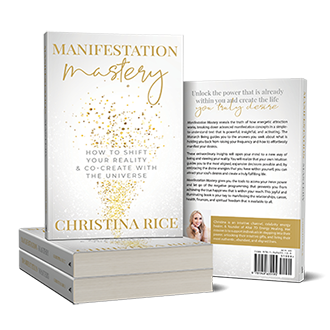
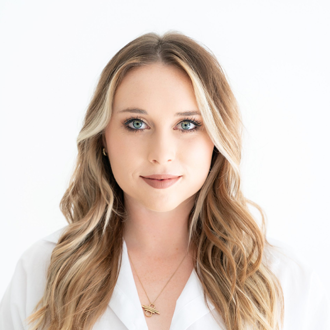

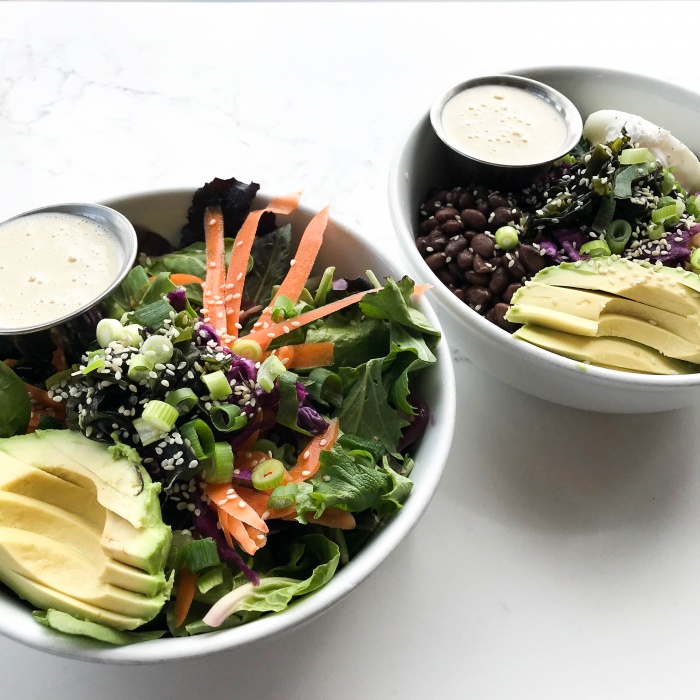

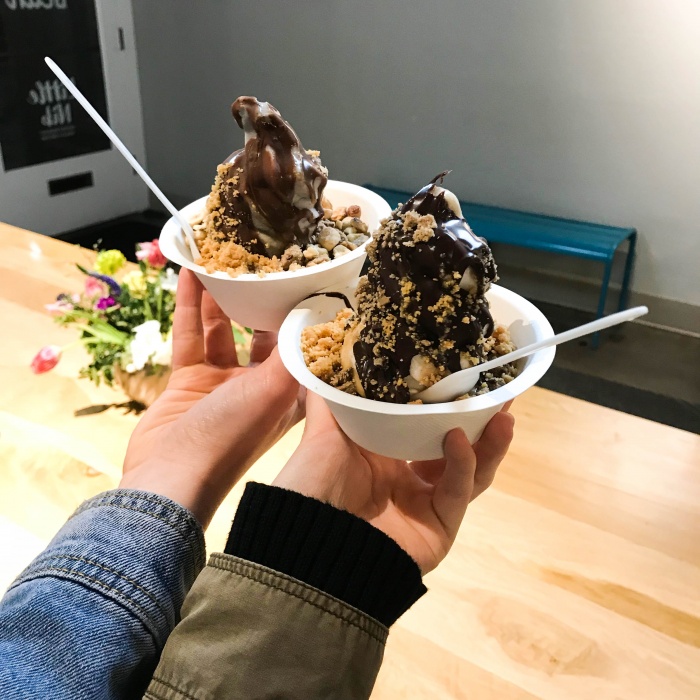
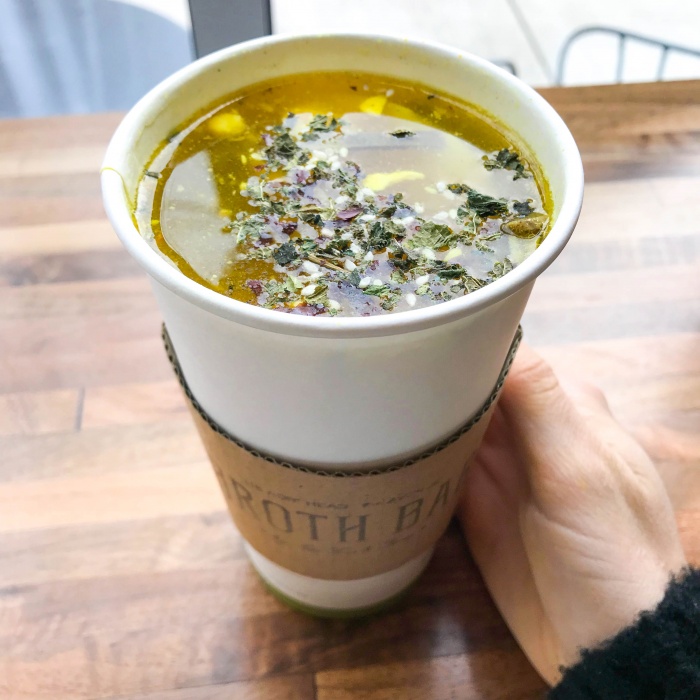
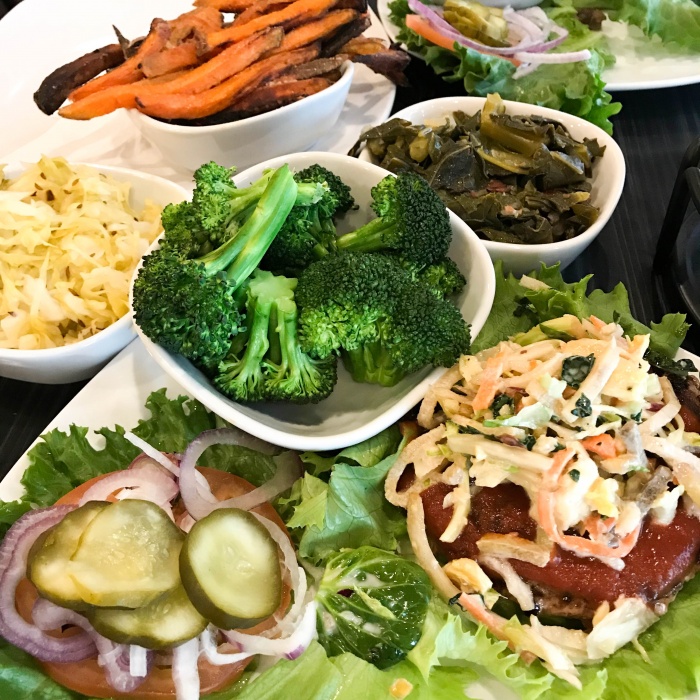
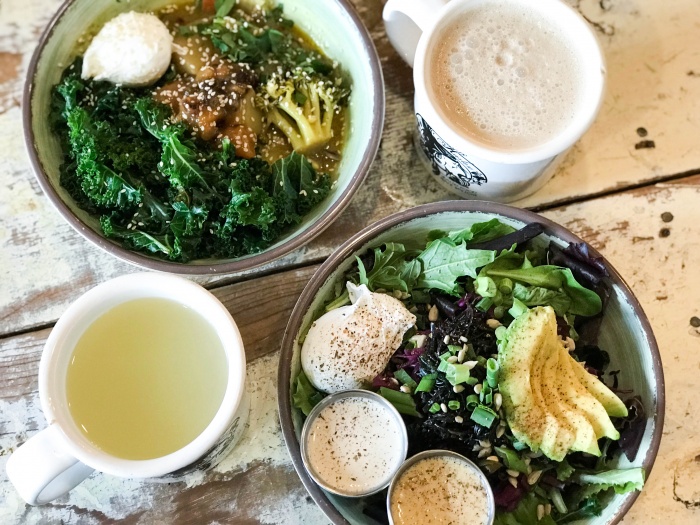
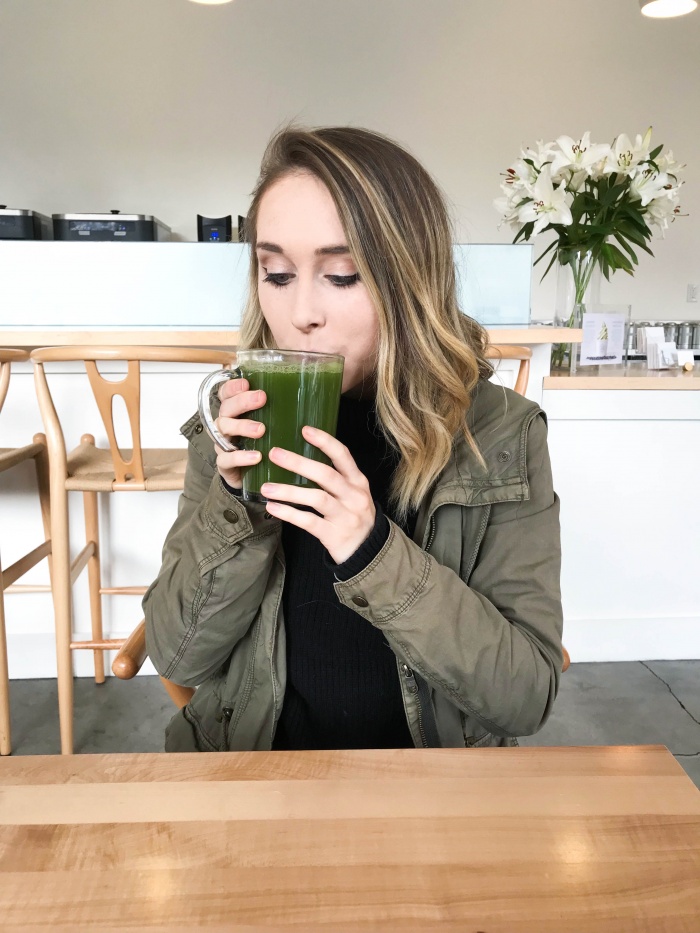
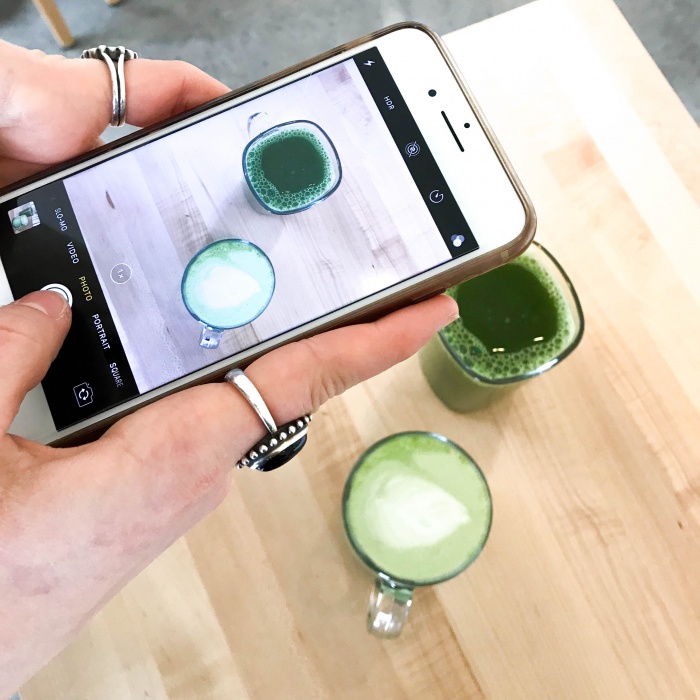
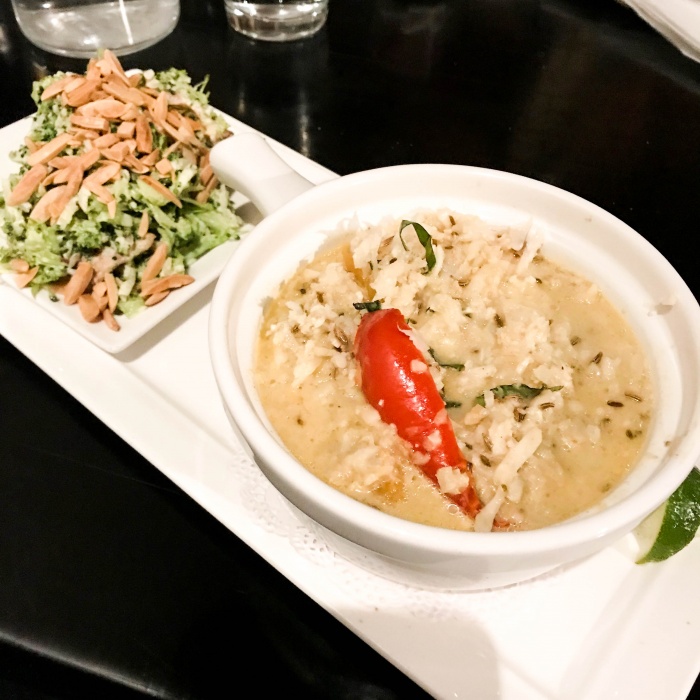
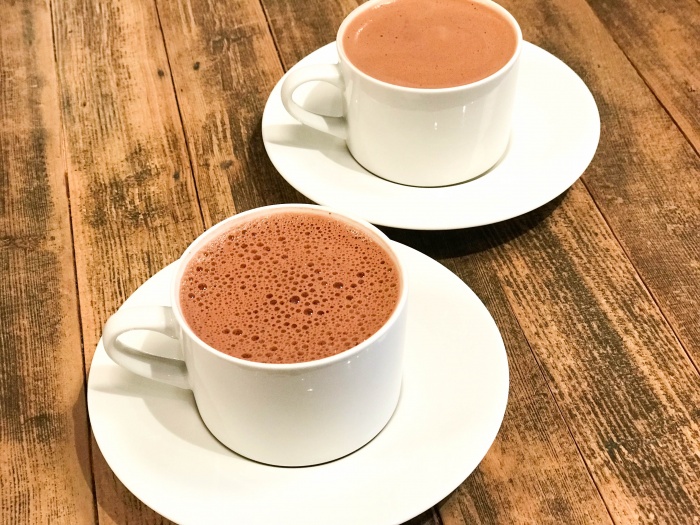





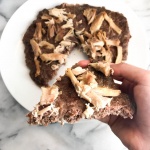
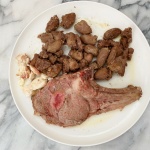


Get Updates
And Goodies
We’re over fake “wellness.” It’s time to unlock your magic & magnetism. Are you ready to vibe higher?
Are you ready to finally optimize your health habits for real results and true health?